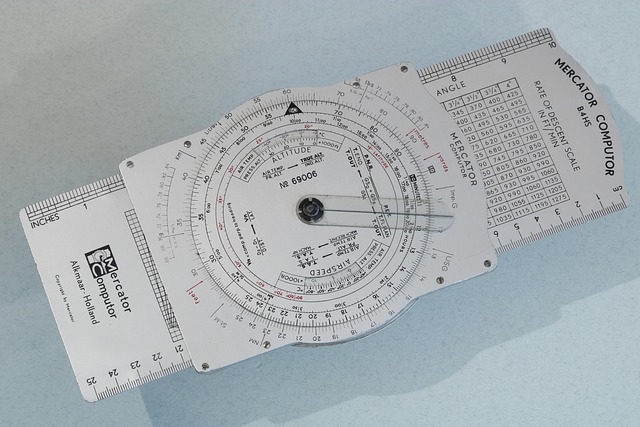

En primer lugar, demos gracias por estar vivos. ¿A quién? Ustedes deciden…, en mi caso, lo tengo claro: a Dios. Este acto inicial no es del todo ritualista, tiene propósito. En segundo lugar, agradezco a @tonyes, quien como columnista por un día de Holos-Lotus, a mi entender, ha dado en la diana, al proponer la iniciativa de [Mi fórmula de la felicidad](https://hive.blog/hive-131951/@tonyes/esp-eng-mi-formula-de). ¿Por qué? Luego de pensarlo, considero que es un objetivo central para nuestra comunidad: descubrir y vivenciar el camino hacia la felicidad.
Estoy muy de acuerdo con lo que nuestro columnista expuso sobre su fórmula de la felicidad. En palabras llanas, sintetizó la esencia de este bien supremo. Pero… como dicen por allí, “cada cabeza es un mundo”; por lo tanto, sin altas pretensiones, responderé a las interrogantes que nos plantea, tratando de dilucidar la fórmula de la felicidad. Aprovecho esta pausa para invitarles a participar (si no lo han hecho), pinchando en el título de la iniciativa en el primer párrafo. Un ejercicio de autoconocimiento con beneficios incluidos. No te lo pierdas.
Ahora, acompáñenme…
**¿Qué es para ti la felicidad?**
Tentado por la ortodoxia, tomé de mi minimalista biblioteca dos libros: Platón y Aristóteles. El primero, con los diálogos socráticos, y el segundo, sobre la ética, dedicado al hijo del tutor del gran Alejandro Magno. Más refrené mi impulso y preferí, en cambio, revisar mis propios pensamientos con base en la experiencia. Sí, convencido de que ya mi mente está infestada con las ideas de estos sabios de la antigua Grecia, como también por las del resto de los pensadores posteriores de Occidente, incluyendo a sociólogos y psicólogos modernos, como Maslow, con su célebre pirámide conceptual. Para este último, podría decirse que la felicidad es la satisfacción de las necesidades biopsicosociales.
Sin embargo, Maslow olvidó, a ex profeso, la dimensión espiritual. ¿De qué sirve resolver los problemas materiales sin abordar los intangibles más allá de la mente y la emoción? Es decir, aquellos que nos conectan con la fuente primordial de la existencia. He aquí, la propia armonía.
Asimismo, es propicio distinguir la felicidad de la alegría, sin ser excluyente entre ellas. La primera, sublime, que enaltece al alma, y la segunda, consecuencia de acciones que liberan emociones placenteras fugaces.
Por el momento, dejaré abierta la definición de felicidad

**¿Cuenta alguna anécdota de alguna acción que hayas realizado y te haya dado felicidad?**
En el Caribe, hoy, estamos en época de lluvia. Gozo o desgracia, según sean las circunstancias. No obstante, en mi pubertad la lluvia fue una fuente de alegría. Recuerdo que salía a la calle descalzo a torso desnudo para unirme a los muchachos en las correrías por mi pueblo en cuanto caían las primeras gotas. Solo el resplandor y el trueno apaciguaban las risas, emanadas de la emoción, de frescura y de libertad compartida y contagiosa. Estábamos alegres, pero no felices de todo.
En cambio, la felicidad se hizo patente al ver por primera vez a cada uno de mis hijos. Un estado de realización y propósito que muestra un aspecto de la verdadera felicidad.
Creo que habréis pillado la diferencia no reñida entre alegría y felicidad.
**¿Cuáles son los aspectos que consideras debe tener una persona para considerar ser feliz?**
¡Caramba! ¿Qué pregunta tan peliaguda? No es que las primeras fueran unas mantequillas. De hecho, uno podría estar equivocado. Pero si ya he llegado hasta aquí, la lógica me indica que uno debe cuidar todos los aspectos. Desde el plano más bajo de lo material, hasta el plano más elevado de lo espiritual. Aunque pensándolo mejor, es una total sandez tal separación. Claro, entiendo, es muy necesaria para nuestro cerebro, limitado por los sentidos.
En tal sentido, para ser feliz, hay que cuidar en forma holística nuestro ser. La felicidad implica la armonía.
En consecuencia, el buscar la armonía significa atender ciertos factores a tomar en virtud del sentido común construido sobre la psicología moderna. Entre estos factores tenemos, por ejemplo: Las relaciones sociales, establece conexiones genuinas con el prójimo para formar lazos y contactos con familiares y amigos, lo que reduce el estrés y aumenta la sensación de pertenencia; El sentido de propósito, haciéndonos sentir que la vida tiene significado, dirección y motivación; Autonomía, fortalece la autoestima a través del ejercicio del libre albedrío; Competencia, mejora la confianza y la satisfacción al ser capaces de obrar por sí solo; Resiliencia, mantiene la estabilidad emocional al ser capaces de recuperarnos de las adversidades con lecciones aprendidas; Salud física, ayuda a mantener el equilibrio entre cuerpo y mente; Gratitud, establece un estado de ánimo positivo al reconocer los efectos de las circunstancias más allá de lo inmediato; y por último, aunque en realidad, es el primero, de donde depende los demás factores, Relación íntima con la Divinidad, camina a su lado en la misma dirección hacia lo bueno, lo bello, y lo correcto.
**¿Existe la felicidad infinita?**
Siendo pragmático, no. Lo finito no puede contener lo infinito. Claro, desde una perspectiva filosófica y metafísica, sí.
Empero, imaginen que están en un estado permanente de éxtasis. Los efectos de la euforia (un estado asociado a la felicidad) están estudiados. Sencillamente, el cuerpo no soportaría una exposición prolongada. Ahora, desde la perspectiva espiritual, intuyo que es perfectamente posible. ¡So pena de todo el respeto que le tengo a los agnósticos!
En cualquier caso, al final ser feliz es una decisión y una forma de obrar en el mundo hacia lo bueno, bello y correcto. Es la práctica de hábitos saludables sin perjudicar a los demás. Es alegrarse del bien del otro y consolar sus penas.
¿Qué si es infinita y eterna? ¿Qué importa? ¡Hay que vivirla…!

**¿Cuál es tu fórmula de la felicidad?**
Aquí el meollo, ¿cómo medir lo intangible? Pues no se puede en el sentido estricto, pero... sí podemos elaborar un constructo que se acerque. Por eso vemos estadísticas y comparaciones que muestran los países con mayor índice de felicidad.
Sin el rigor de las mismas, les propongo aplicar la siguiente fórmula:
Felicidad ≈ (R + P + A + C + Res + S + G) / 7
Donde las variables significan:
R = Relaciones sociales de calidad
P = Propósito y sentido
A = Autonomía (sentir control)
C = Competencia (sentir habilidades)
Res = Resiliencia (capacidad de recuperarse)
S = Salud física y mental
G = Gratitud (aprecio por lo que se tiene)
Interpretación:
Con una escala del 1 al 10 para cada variable, el promedio del puntaje asignado indicará el nivel de felicidad en función del bienestar. Mientras más alto el valor promedio, mayor felicidad.
¡Ven lo fácil! ¡No se engañen! ¿Dónde queda la variable imponderable, la más importante: la de la divinidad?
Aunque tengáis 10 en tu propia fórmula de felicidad. Solo quien anda en la búsqueda de Dios tiene verdadera felicidad. Aunque esté lleno de necesidades humanas. ¿Acaso no veis a pordioseros bondadosos más felices que a multimillonarios avaros y codiciosos?
Entonces, sean felices...
Saludos, nos veremos pronto con el favor de Dios.

Un breve ensayo original de @janaveda
Imagen de portada de Josep Monter Martinez en Pixabay
¡Cansado! ¿Ya no te satisfacen las redes sociales tradicionales?
Entonces, te invito a conocer Hive presionando aquí.
Únete a nuestra comunidad global, en donde la libertad sin censura en nuestro norte.



How do you measure your happiness?
First, let's give thanks for being alive. To whom? You decide... In my case, it's clear to me: God. This initial act isn't entirely ritualistic; it has a purpose. Second, I'd like to thank @tonyes, who, as a columnist for a day for Holos-Lotus, has, in my opinion, hit the nail on the head by proposing the initiative of [My Formula for Happiness](https://hive.blog/hive-131951/@tonyes/esp-eng-mi-formula-de). Why? After thinking about it, I believe it's a central objective for our community: to discover and experience the path to happiness.
I strongly agree with what our columnist explained about his formula for happiness. In simple terms, he summarized the essence of this supreme good. But... as they say, "every mind is a world"; therefore, without lofty pretensions, I will answer the questions he poses, trying to elucidate the formula for happiness. I'd like to take advantage of this break to invite you to participate (if you haven't already) by clicking on the title of the initiative in the first paragraph. An exercise in self-knowledge with benefits included. Don't miss it.
Now, join me...
**What does happiness mean to you?**
Tempted by orthodoxy, I took two books from my minimalist library: Plato and Aristotle. The first, with the Socratic dialogues, and the second, on ethics, were dedicated to the son of the tutor of the great Alexander the Great. I restrained my impulse and preferred, instead, to review my own thoughts based on experience. Yes, convinced that my mind is already infested with the ideas of these ancient Greek sages, as well as those of later Western thinkers, including modern sociologists and psychologists, such as Maslow, with his famous conceptual pyramid. For the latter, it could be said that happiness is the satisfaction of biopsychosocial needs.
However, Maslow deliberately forgot the spiritual dimension. What good is solving material problems without addressing the intangible ones beyond the mind and emotions? That is, those that connect us to the primordial source of existence. This is harmony itself.
Likewise, it is appropriate to distinguish happiness from joy, without being exclusive between them. The former is sublime, elevating the soul; the latter is the consequence of actions that release fleeting pleasurable emotions.
For the moment, I'll leave the definition of happiness open.

**Can you tell us an anecdote about an action you've taken that brought you happiness?**
In the Caribbean, today, we're in the rainy season. Joy or misfortune, depending on the circumstances. However, during my teenage years, the rain was a source of joy. I remember going out barefoot, topless, to join the boys on their forays through my village as soon as the first drops fell. Only the glare and the thunder calmed the laughter, emanating from excitement, freshness, and a shared and contagious freedom. We were happy, but not completely happy.
However, happiness became evident when I saw each of my children for the first time. A state of fulfillment and purpose that shows an aspect of true happiness.
I think you've grasped the difference between joy and happiness.
**What aspects do you think a person should consider themselves happy?**
Wow! What a tricky question! It's not that the first ones were such a mess. In fact, one could be wrong. But if I've gotten this far, logic tells me that one must take care of all aspects. From the lowest level of the material to the highest level of the spiritual. Although, on second thought, such a separation is utter nonsense. Of course, I understand; it's very necessary for our brain, limited by the senses.
In this sense, to be happy, we must take care of our being holistically. Happiness implies harmony.
Therefore, seeking harmony means addressing certain factors based on common sense, built on modern psychology. These factors include, for example: Social relationships, establishing genuine connections with others to form bonds and connections with family and friends, which reduces stress and increases a sense of belonging; A sense of purpose, making us feel that life has meaning, direction, and motivation; Autonomy, strengthening self-esteem through the exercise of free will; Competence improves confidence and satisfaction by being able to act alone; Resilience maintains emotional stability by being able to recover from adversity with lessons learned; Physical Health helps maintain balance between body and mind; Gratitude establishes a positive mood by recognizing the effects of circumstances beyond the immediate; and lastly, although it is actually the first, on which the other factors depend, Intimate Relationship with Divinity, walking alongside it in the same direction toward what is good, beautiful, and right.
**Does infinite happiness exist?**
Being pragmatic, no. The finite cannot contain the infinite. Of course, from a philosophical and metaphysical perspective, yes.
However, imagine you are in a permanent state of ecstasy. The effects of euphoria (a state associated with happiness) have been studied. Simply put, the body would not withstand prolonged exposure. Now, from a spiritual perspective, I sense that it is perfectly possible. At the risk of all the respect I have for agnostics!
In any case, in the end, being happy is a decision and a way of acting in the world toward what is good, beautiful, and right. It is the practice of healthy habits without harming others. It is rejoicing in the good of others and comforting their sorrows.
So what if it is infinite and eternal? What does it matter? You have to live it…!

**What is your formula for happiness?**
Here's the crux: how do you measure the intangible? Well, it's not possible in the strictest sense, but... we can develop a construct that comes close. That's why we see statistics and comparisons showing the countries with the highest happiness indexes.
Without the rigor of these, I propose applying the following formula:
Happiness ≈ (R + P + A + C + Res + S + G) / 7
Where the variables stand for:
R = Quality social relationships
P = Purpose and meaning
A = Autonomy (feeling in control)
C = Competence (feeling skilled)
Res = Resilience (ability to recover)
S = Physical and mental health
G = Gratitude (appreciation for what one has)
Interpretation:
Using a scale of 1 to 10 for each variable, the average of the assigned scores will indicate the level of happiness based on well-being. The higher the average value, the greater the happiness.
See how easy it is! Don't be fooled! Where is the imponderable variable, the most important one: that of divinity?
Even if you have 10 in your own formula for happiness. Only those who seek God have true happiness. Even if they are filled with human needs. Don't you see kind beggars as happier than greedy and avaricious multimillionaires?
Then be happy...
Best regards, we'll see you soon, God willing.

A brief essay by @janaveda in Spanish and translated to English with https://translate.google.com
Cover image by Josep Monter Martinez on Pixabay
Tired...! Are you no longer satisfied with traditional social networks?
Then I invite you to get to know Hive by clicking here.
Join our global community, where uncensored freedom is our north.
